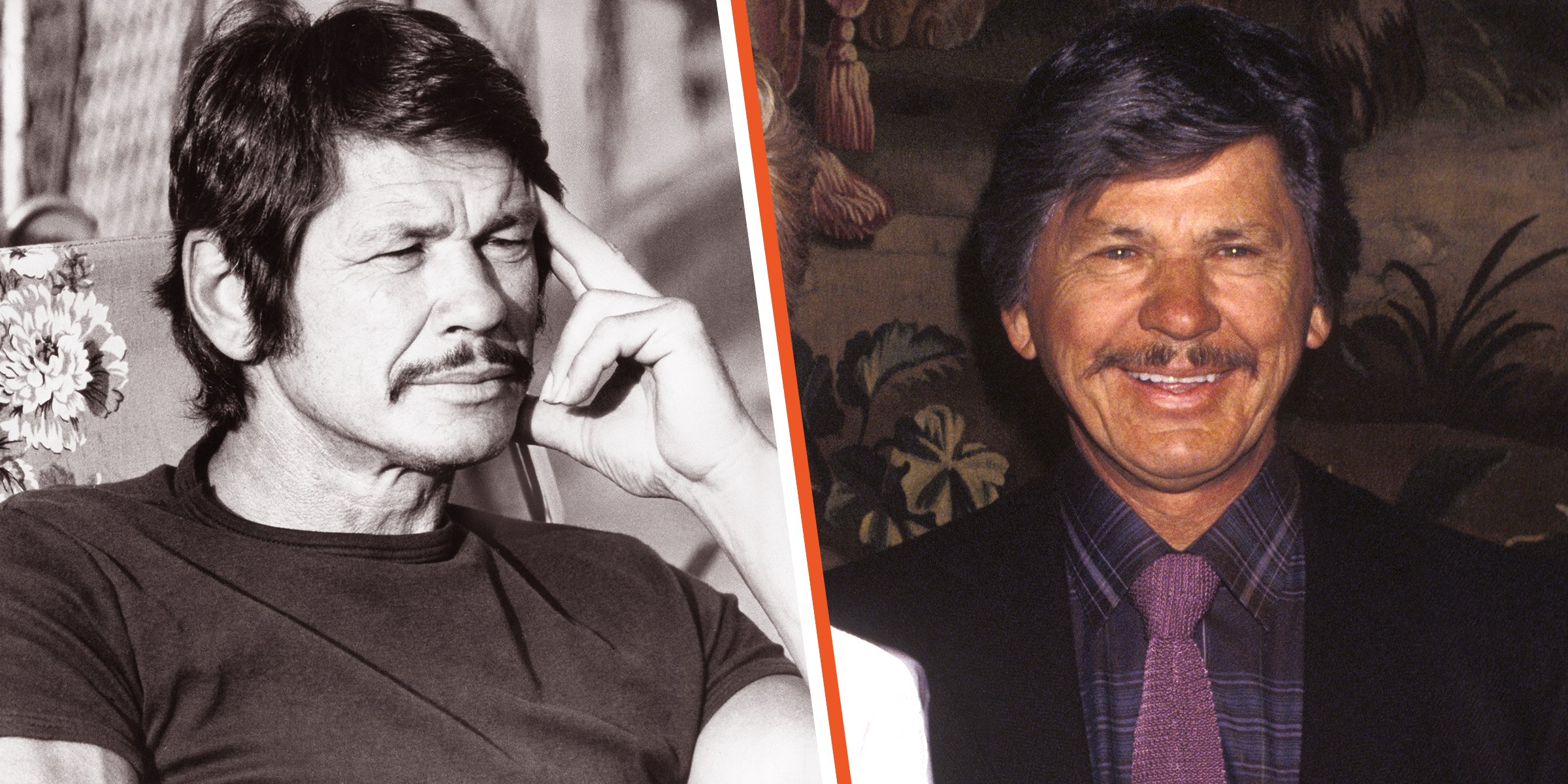
Charles Bronson Inherited Entire Fortune from Fan Who Left Family with Nothing — He Planned to Donate the Money
Charles Bronson's diehard fan left him an entire inheritance, which is unprecedented in Hollywood. However, the noble deed led to a dispute between him and two other parties.
Late American actor Charles Bronson was well-known for his rigid characters, playing the tough-guy vigilante roles. He starred in movies such as "Death Wish," "The Mechanic," "The Dirty Dozen," "The Great Escape," and "The Magnificent Seven."
Before Bronson's rise to mega-superstardom, the movie star endured a painful childhood, coming from an impoverished background.
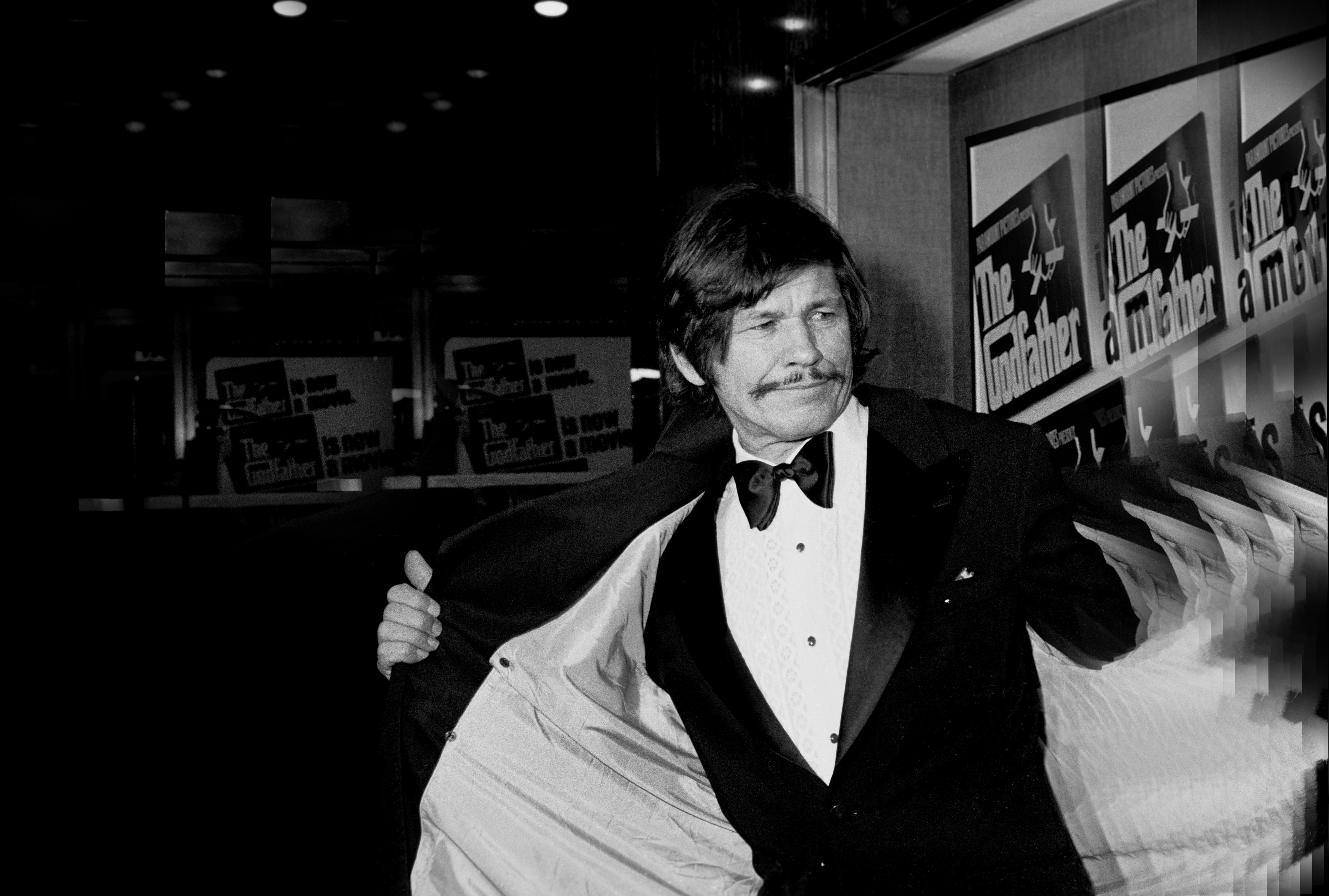
Actor Charles Bronson during the premiere of "The Godfather" on March 14,1972 in New York, New York. / Source: Getty Images
He was born Charles Buchinsky and had fourteen siblings from struggling parents. The Pennsylvania native's mother was Mary Valinsky, of Lithuanian descent, and his father, Walter Buchinsky, was also a Lithuanian immigrant coal miner.
After graduating from high school, the "Dead to Rights" star joined his father in the mining industry and later served in WWII. When he returned from the war, Bronson used the GI Bill to study art and later enrolled at the Pasadena Playhouse in California.
He made quite an impression on one of his teachers, who later put in a good word for him to director Henry Hathaway. That move led to Bronson making his debut in the film "You're in the Navy Now" in 1951.
BRONSON'S MASSIVE HOLLYWOOD EARNINGS OVER THE YEARS
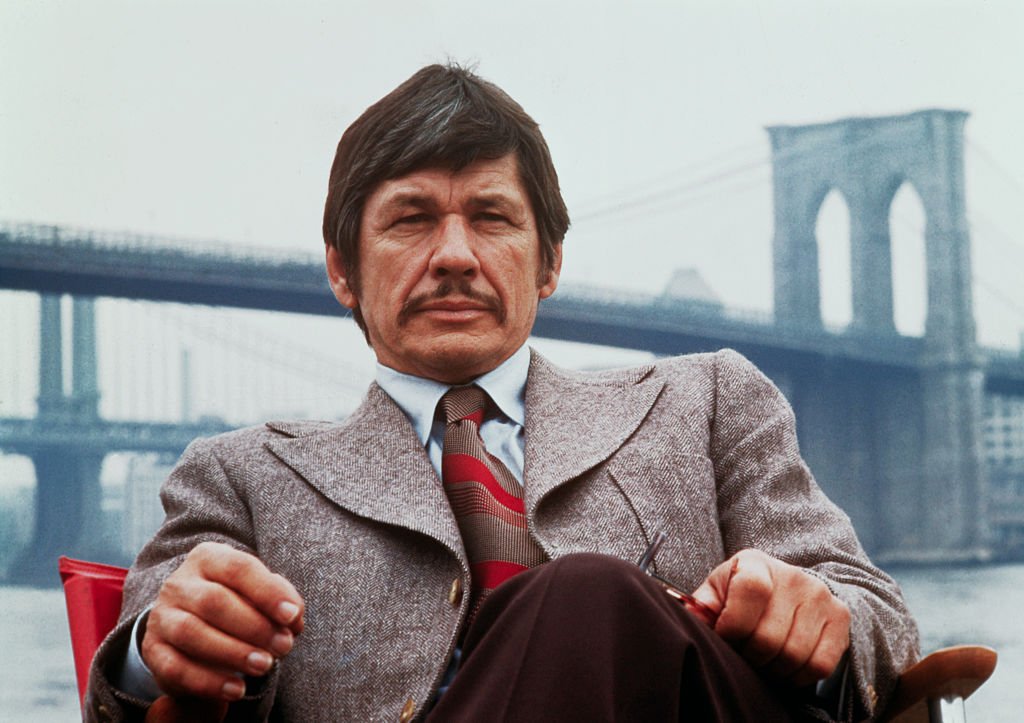
Charles Bronson posing for a publicity handout for the "Death Wish" shows in 1974. / Source: Getty Images
From the beginning of his acting career, Bronson's earnings from 1958 include $5,000 from the movie "Machine-Gun Kelly." He also made $2,000 per week from his appearance on the TV series "Man with a Camera."
His fortune skyrocketed in the 1970s, raking in millions per film. In 1973, his salary from the movie "Valdez, il mezzosangue" was $1 million. That same year, he made another $1 million from the film "The Stone Killer."
His third $1 million paycheck came from the 1974 film "Death Wish." The macho actor's last $1 million salary was in the 1976 movie "St. Ives." Bronson's value doubled even more in 1983 when he earned $2 million from the movie "10 to Midnight."
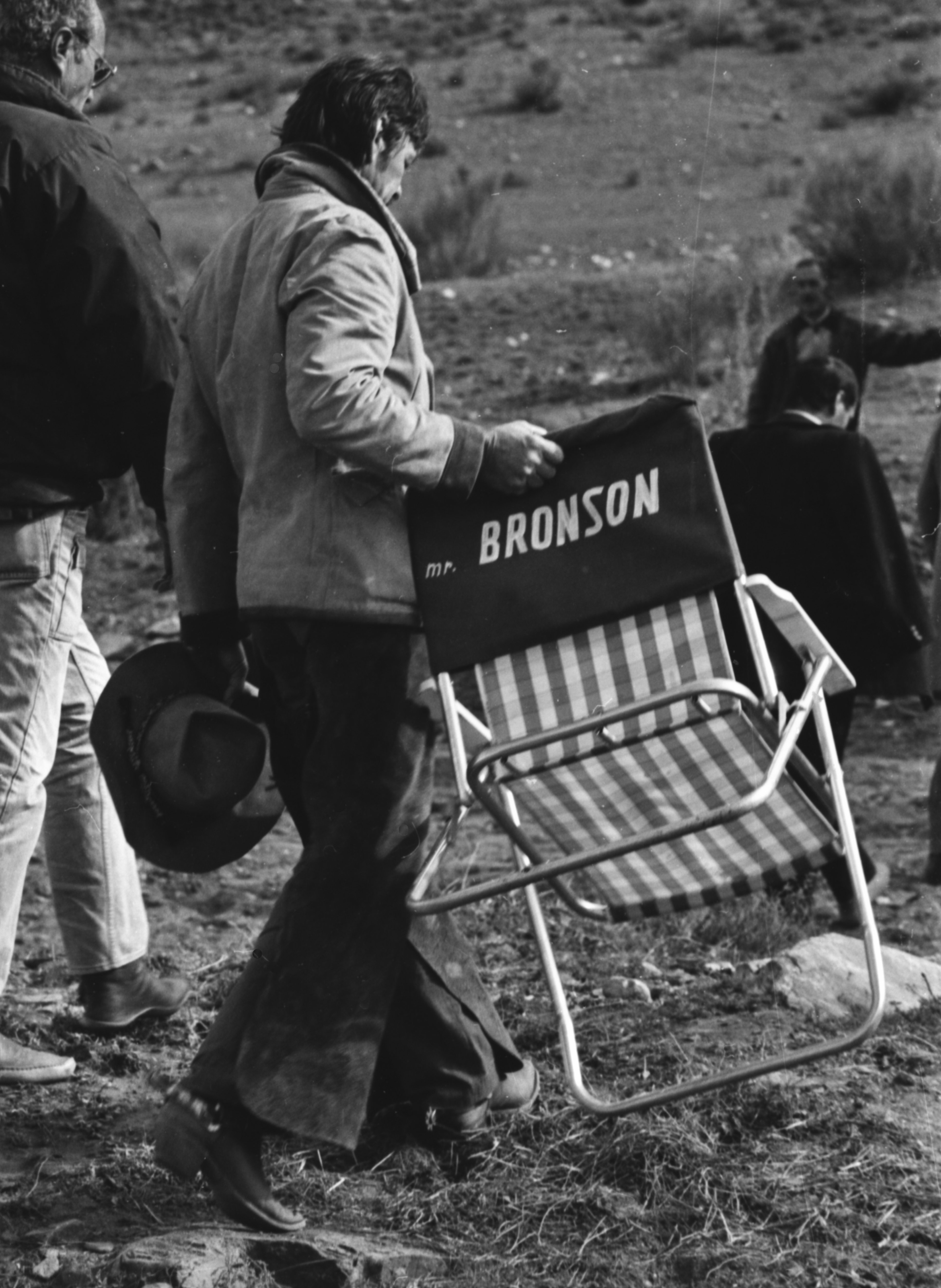
Charles Bronson during the filming of the movie "Wild Horses," in December 1972, Almeria, Spain. / Source: Getty Images
But Bronson's fortune did not only come from his salary. In 1975, he bargained when he sued Warner Bros. and MGM, claiming the studios failed to pay him profits from his two-hit 1970s movies.
A trustee for his estate, Larry Martindale, claimed in a lawsuit filed in a Los Angeles Superior Court that a 1975 Bronson film deal with the Warner Bros, "St. Ives," and a 1976 contract for the MGM production "Telefon" provided the veteran with 10%-15% of "gross receipts" and "gross film rentals."
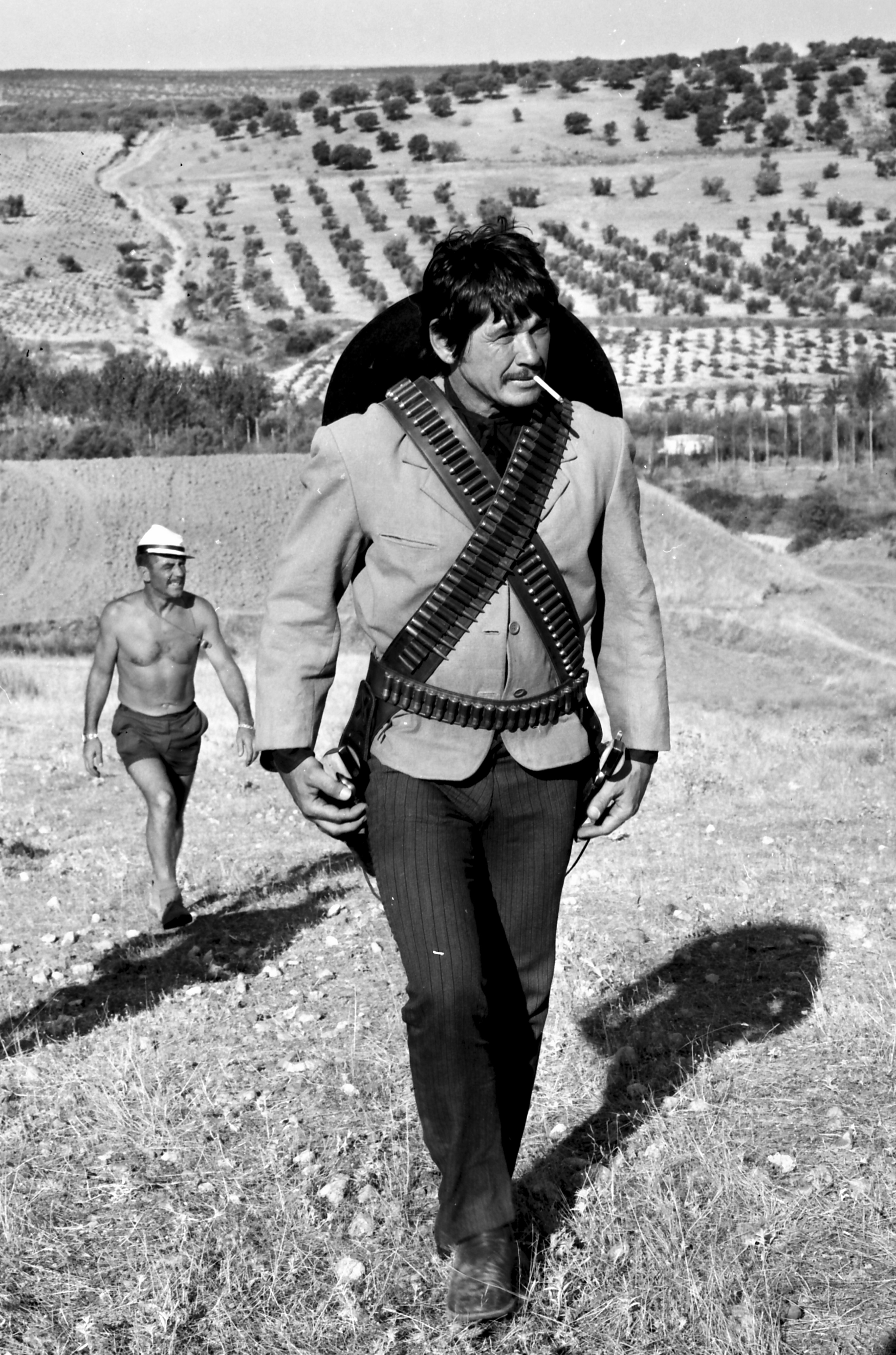
Charles Bronson during the filming of the movie "Wild Horses," in December 1972, Almeria, Spain. / Source: Getty Images
Martindale revealed in the documents that the Bronson estate conducted their independent audit of the movies and discovered a significant underreporting of revenue.
In the suit, the Bronson estate specifically targeted the studios for the unfair allocation of revenue generated from TV sales and only reporting 20% of the gross receipts for home video and DVD sales.
A FAN LEFT HIM AN INHERITANCE THAT IGNITED ANIMOSITY
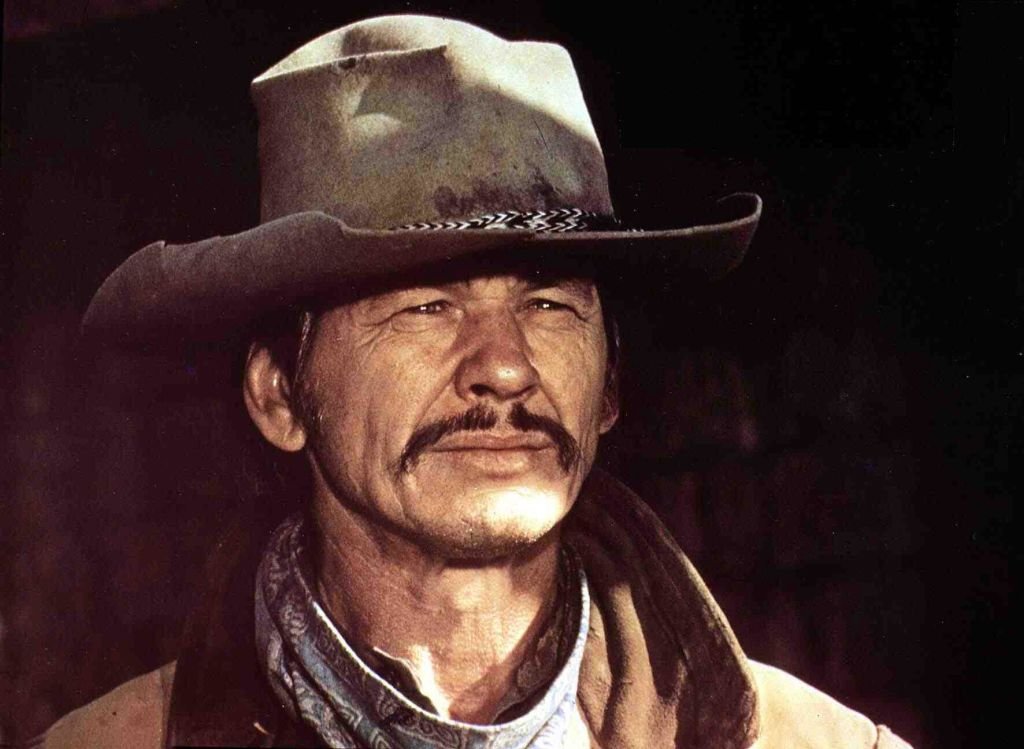
Charles Bronson as Chino Valdez is a horse breeder in the film "Chino" in 1976. / Source: Getty Images
Despite Bronson being a millionaire himself and wealthier than most people, he unexpectedly received an unsolicited inheritance from a fan. A woman from Kentucky named Audrey Jean Knauer had a death wish for the "Chino" star.
Knauer left an estate worth about $300,000 to Bronson, whom she had never met. She did not want any of her family members to benefit from her money, stating:
"Under no circumstances is my mother, Helen, to inherit anything from me, blood, body parts, financial assets, etc."
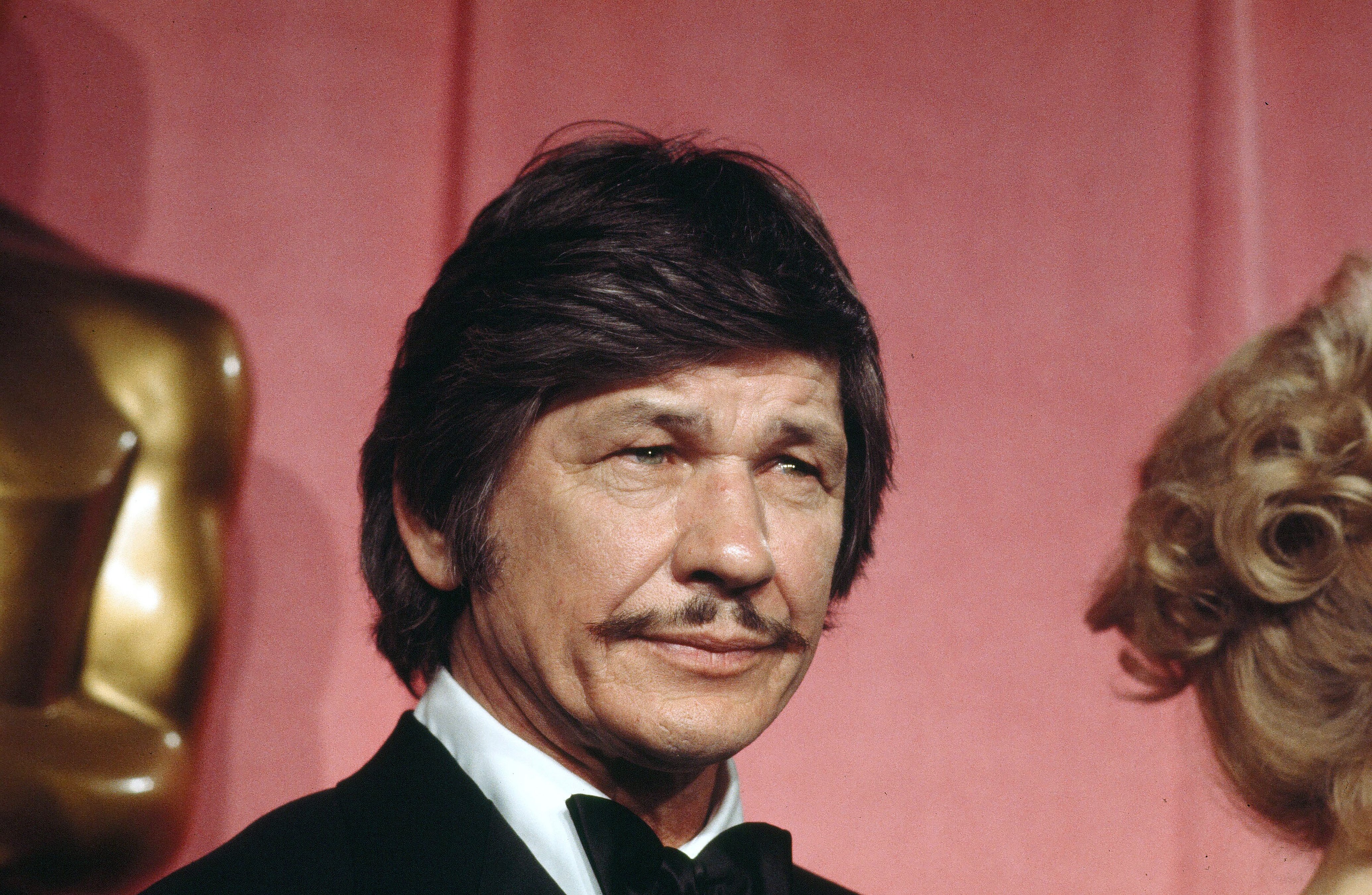
Charles Bronson posing backstage during the 46th Academy Awards at Dorothy Chandler Pavilion in Los Angeles, California. / Source: Getty Images
The peculiar deal stems from her last will that she jotted down on a list of emergency phone numbers before she passed away in December 1997, adding if Bronson did not want the money, he should donate it to a library of her choice:
"I bequeath to Charles Bronson (the talented character actor), and what he doesn't want can pass through to the Louisville Free Public Library."
Upon Knauer's death, Bronson reportedly received half of her money. At the time, it remained unclear whether he would keep it. Soon after, Knauer's sister, Nancy Koeper, filed a lawsuit in Louisville to oppose the will, arguing that she should be the beneficiary.
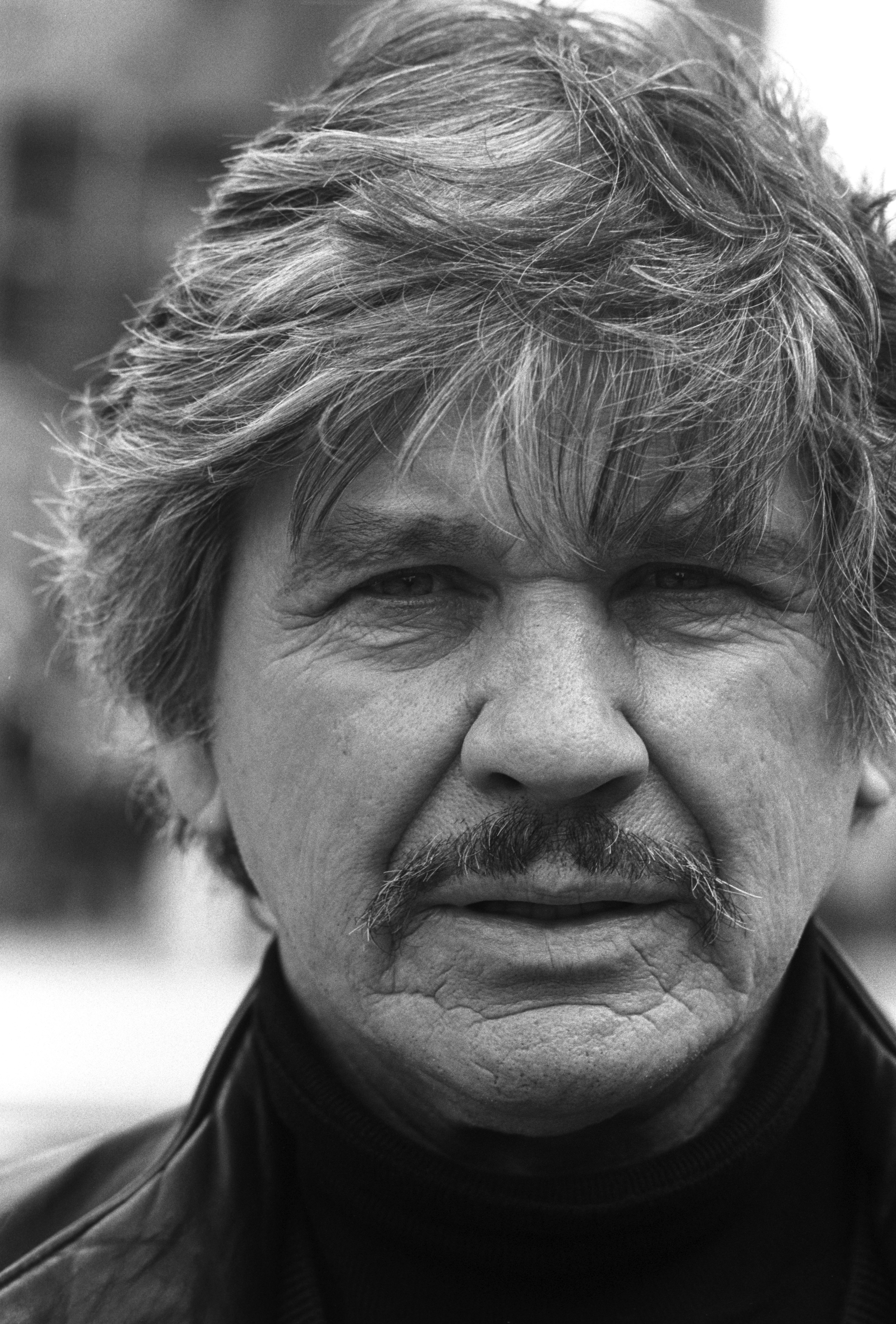
Charles Bronson on the set of "Death Wish 3" on May 25, 1985 in London, England. / Source: Getty Images
Filed court documents claimed Knauer was not in the right state of mind when she made the will and "evidenced in an inappropriate and unnatural obsession with Bronson, amounting to monomania."
Koeper also perpetuated that her sister became fixated on the star and even made a collection of newspaper clippings and photos of him. She also rented out his famous "Death Wish" flicks:
"I don't feel he deserves the money, and I doubt he needs it."
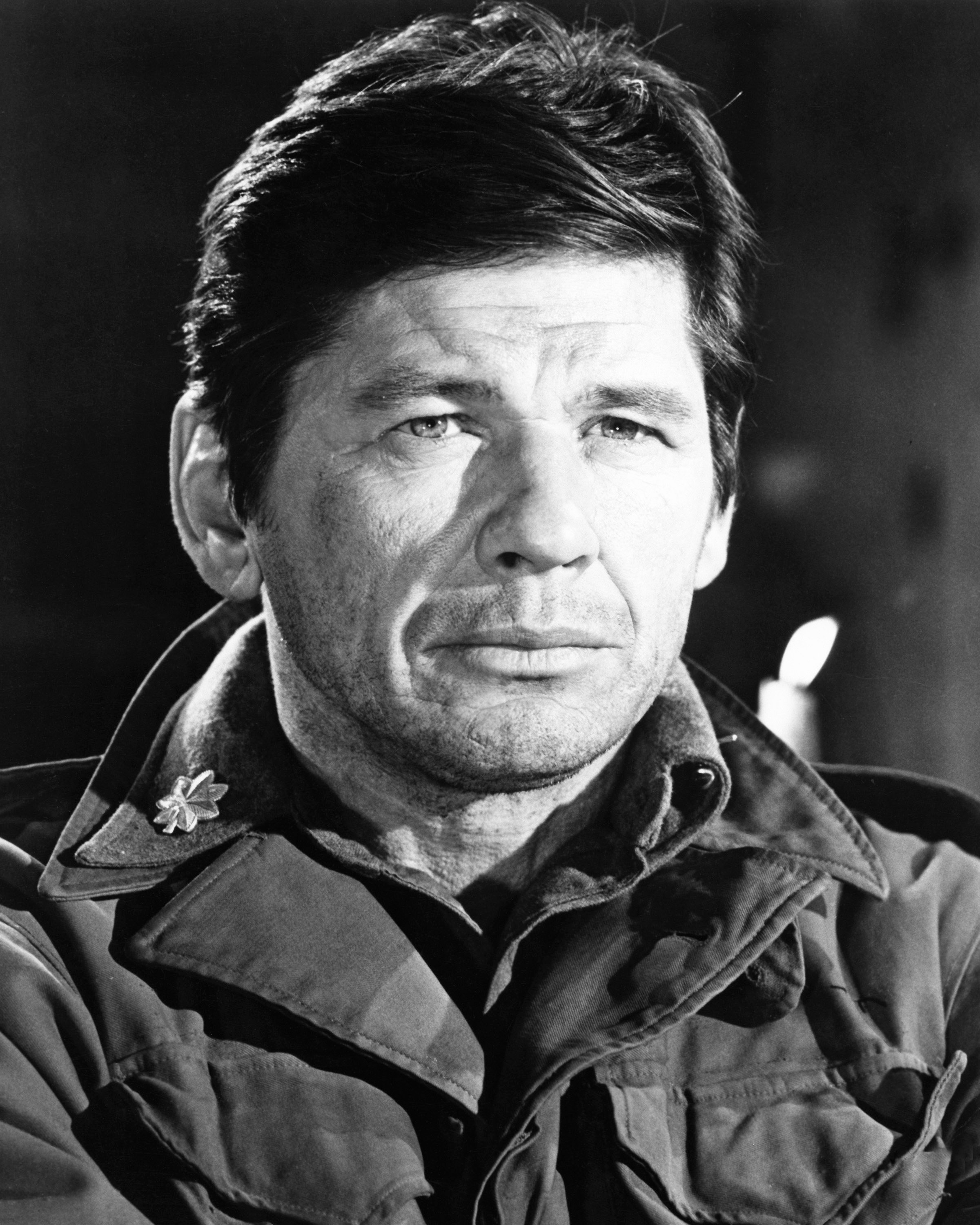
Charles Bronson as Joseph Wladislaw in the film "The Dirty Dozen," in 1967. / Source: Getty Images
Koeper noted that if given the opportunity, she would have appealed to Bronson and told him that he was merely a stranger to her sister and did not love her as she did.
Nonetheless, the California exercise instructor contested the will, which she described as hysterical lines scribbled and scratched on top of a phone list. "I can't help but sit here and think this could have taken care of me," said Koeper.
Moreover, relatives believed the deceased's assets were worth $20,000, and Koeper's lawyer, Ed Schoenbaechler, revealed a handwritten will dated 1977 that left everything else to them.
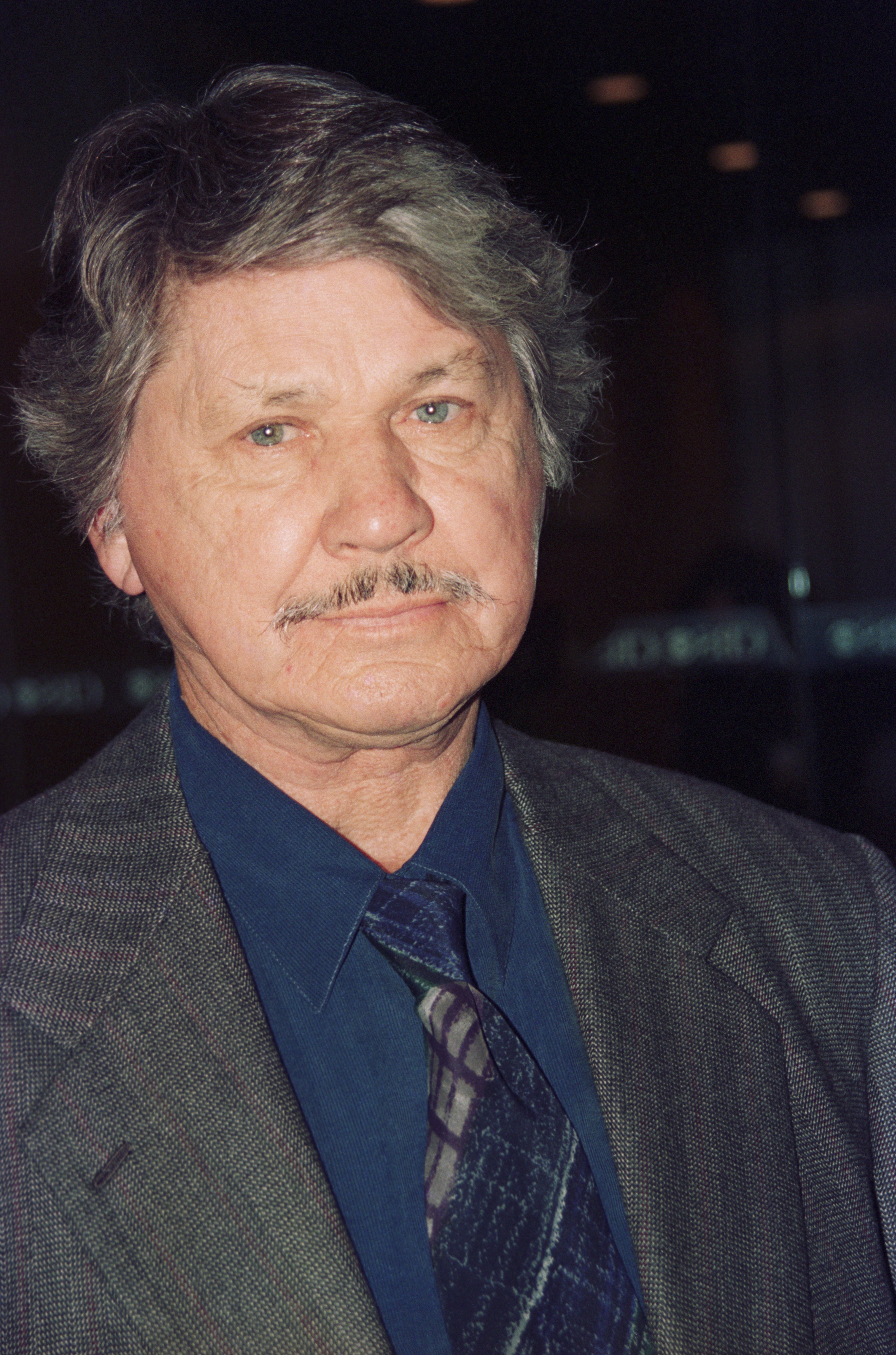
A close-up of movie star Charles Bronson pictured in 1990, New York. / Source: Getty Images
Meanwhile, Koeper admitted Knauer had an obsession with Bronson and perceived him as an avenging individual who was giving and kind, more like a father figure.
In addition, one other party that objected to Knauer's last wish was the Louisville Free Public Library. The organization contacted Bronson regarding the money.
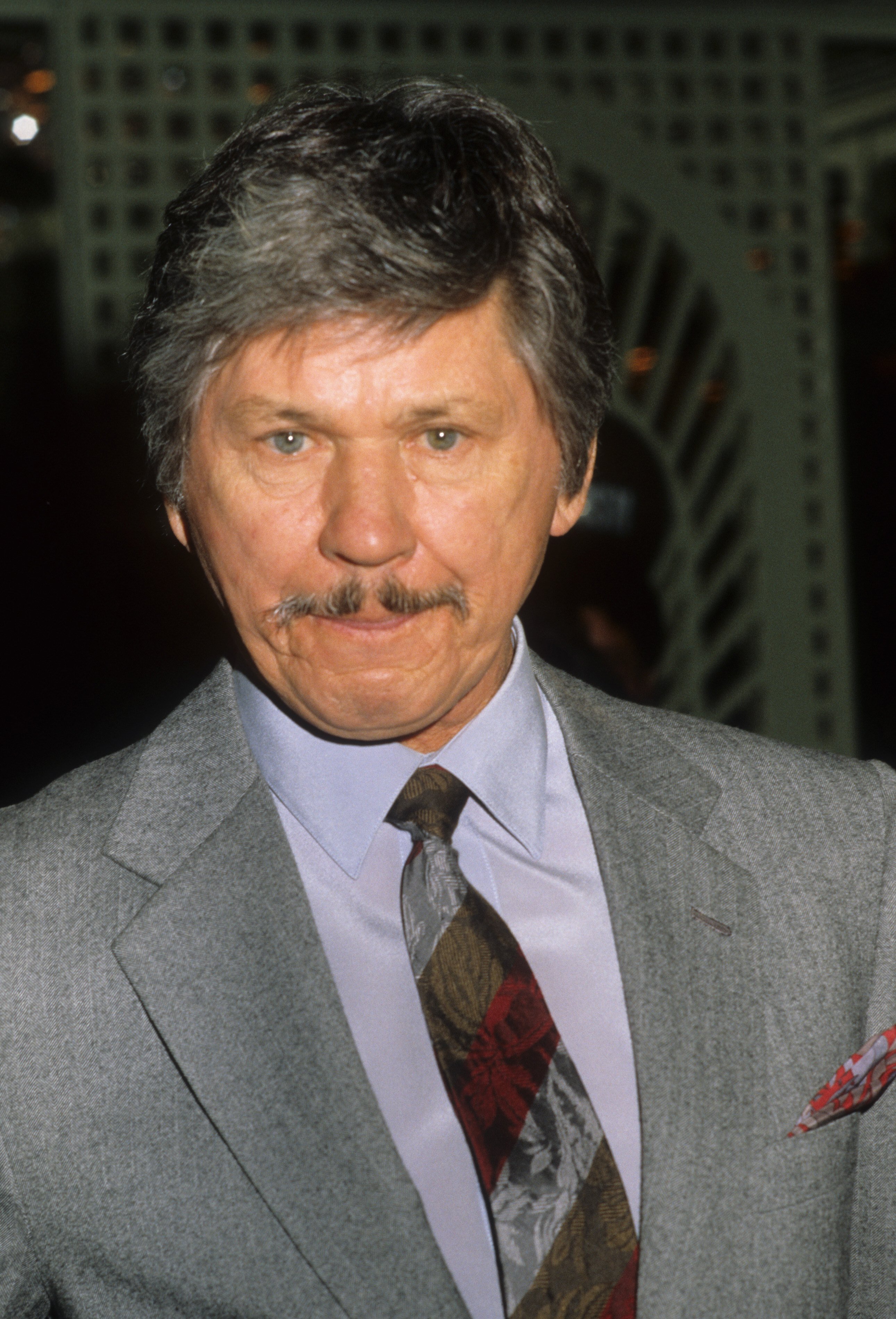
Charles Bronson posing for a portrait in 1985 in Los Angeles, California. / Source: Getty Images
Library director Craig Buthod said the donation would be the third-largest amount in a decade and would be in the top 12 in their history books:
"It's enough for us to buy 15,000 or 20,000 new books, which is enough to stock a small branch library. Or it's enough to keep our summer reading program going through the years."
Buthod revealed Knauer was a retired chemist who often visited the library but had limited contact with the staff as it was alleged she only ended up at the checkout desk.
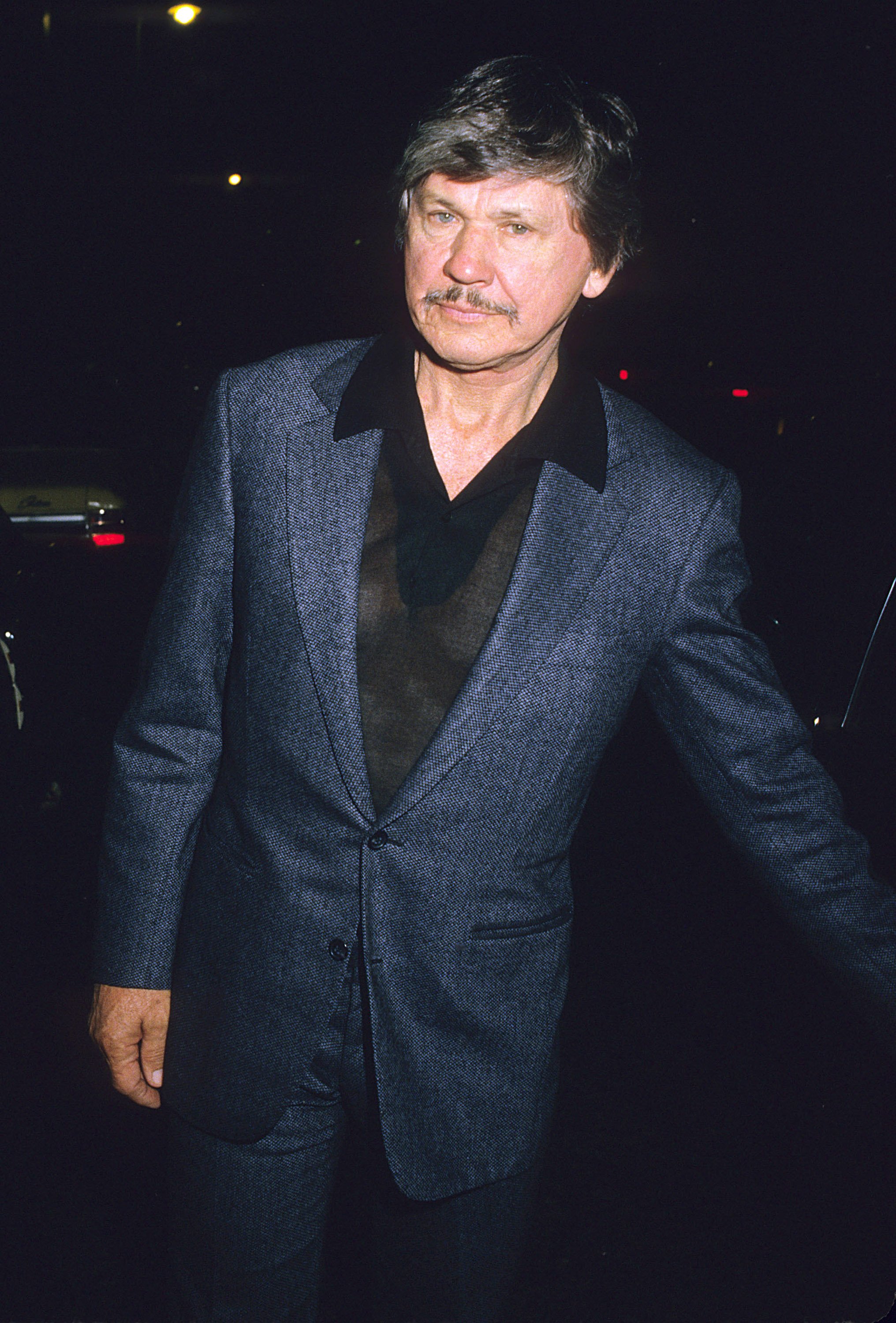
Charles Bronson during Charles Bronson Sighting at Langan's Brasserie in London, Great Britain. / Source: Getty Images
Meanwhile, Koeper expressed the only relation her sister had with the library was that she was a frequent visitor there, often to research more about Bronson:
"I can't imagine a public library wanting to keep me, her sister who needs the money, from having it."
As for Bronson, "The White Buffalo" star decided to donate Knauer's money to charity, his spokeswoman, Lori Jonas told the New York Post.
BRONSON REACHED A SETTLEMENT WITH KNAUER'S FAMILY
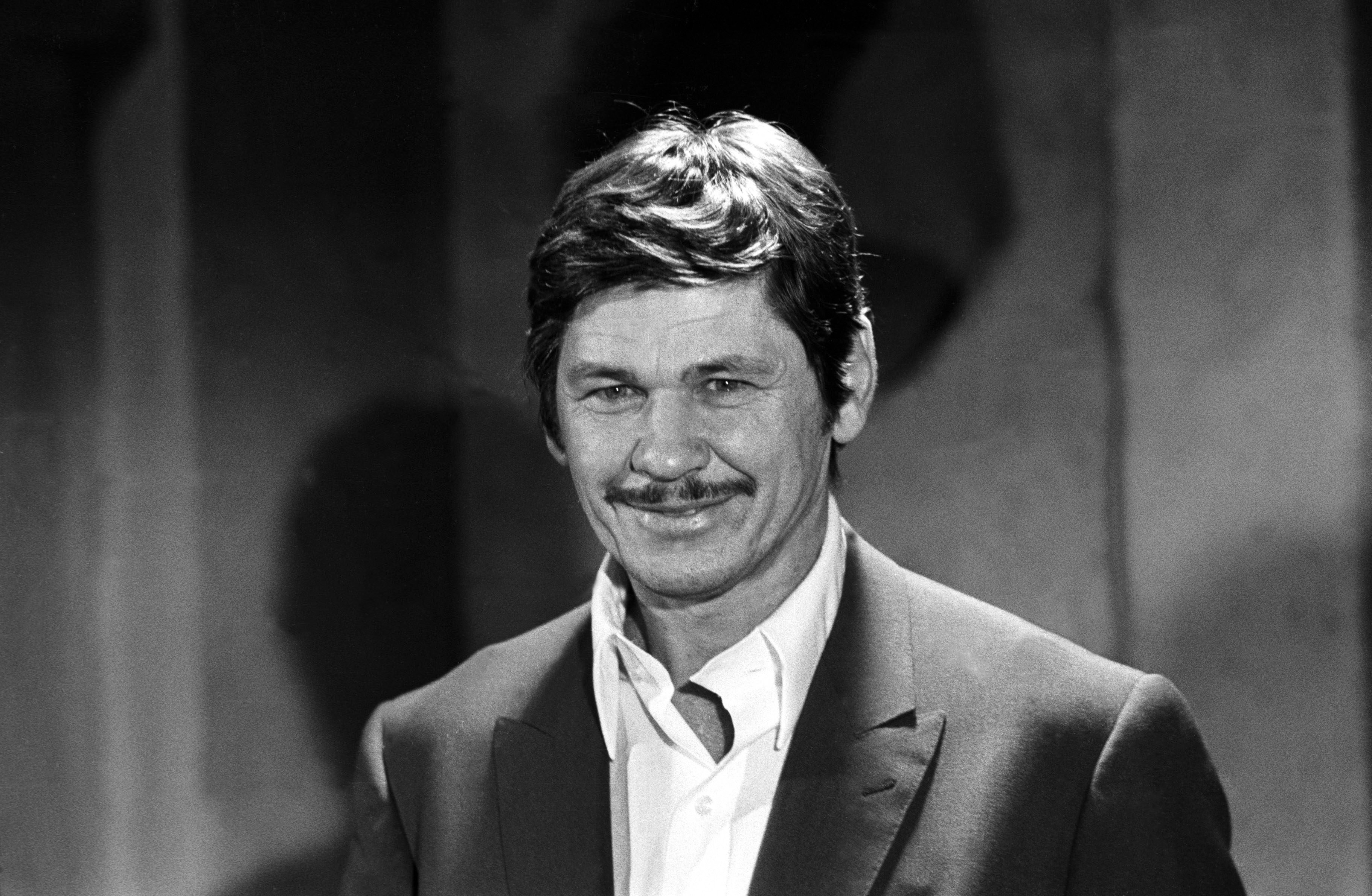
An image of Charles Bronson on the set of the film "Adieu l'ami," in 1968. / Source: Getty Images
Months after the back and forth regarding Knauer's death wish, Bronson killed two birds with one stone when he settled out of court with Koeper with an undisclosed amount paid to the family.
The one party that lost out on the conflict was the library because it declined an alleged offer of $10,000 from Bronson, which was 10 percent less of the estate in the will.
They hoped they would receive a more reasonable amount from the deal, leaving them with nothing. Regarding the reason why Knauer left her money for the Hollywood star, it remains a mystery.
BRONSON DIED FROM A RESPIRATORY ILLNESS
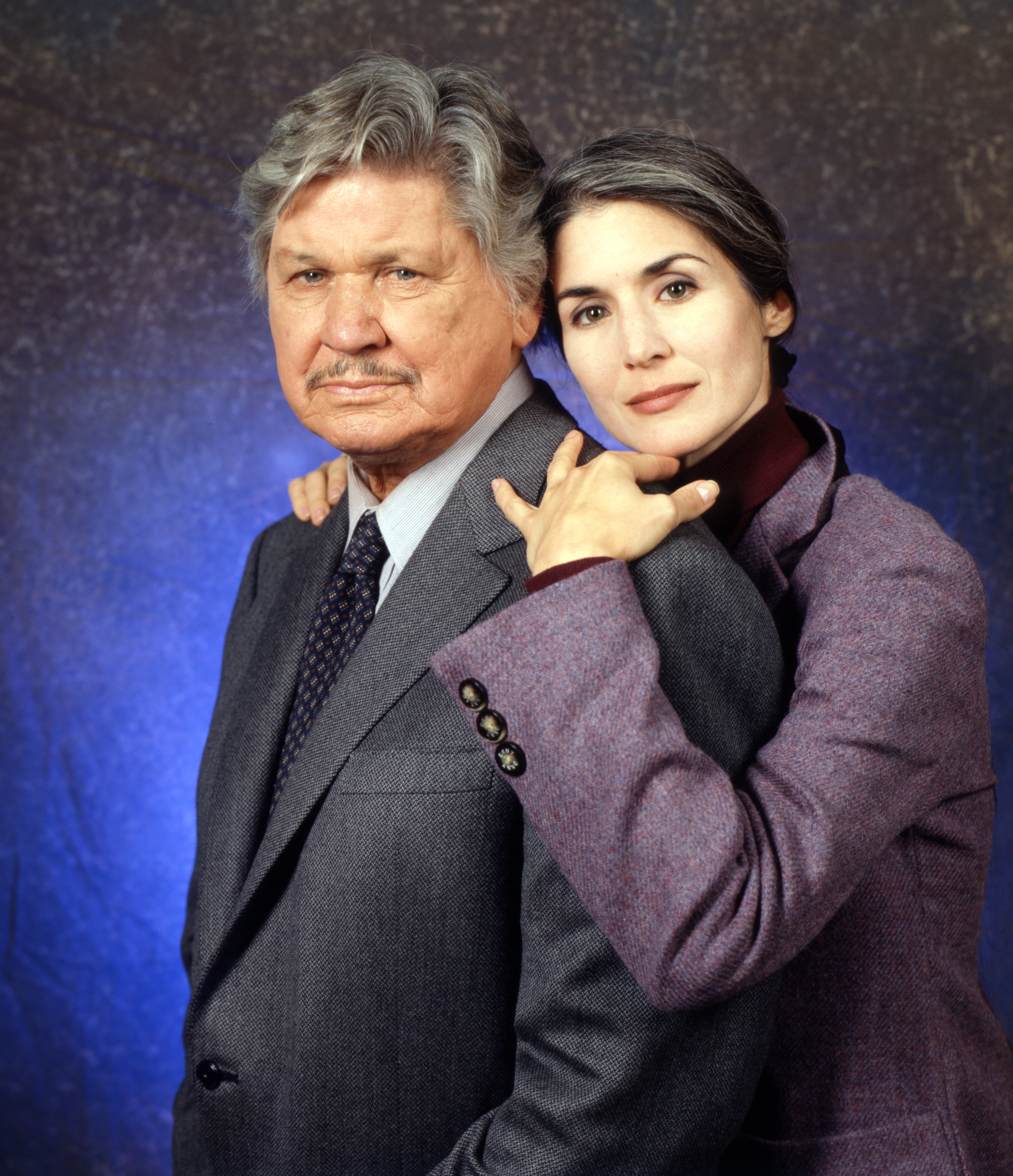
Charles Bronson as Paul Fein pictured with his wife, actress Kim Weeks as Anna Meyer in "Breach of Faith : A Family of Cops II," aired on February 2, 1997. / Source: Getty Images
Bronson sadly died in August 2003 from pneumonia at Cedars-Sinai Medical Center. His wife Kim Weeks was at his bedside, said his publicist Jonas, adding her client had been hospitalized for weeks.
The "Borderline" star was survived by his spouse, Weeks, six children, and two grandchildren. Bronson left behind a $45 million estate, and his beloved widow was left with a Malibu house worth $8 million, including $1.6 million in cash.
